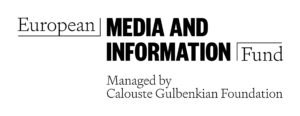🇨🇦 Miners grow anxious as Canada tightens foreign investment rules

By Divya Rajagopal, Reuters
TORONTO — JUNIOR MINING companies hoping to produce lithium, nickel and other green energy metals are worried that Canada’s crackdown on some overseas investors may limit their ability to raise funds for mines and related facilities.
Ottawa last fall proposed bolstering its Investment Canada Act to give government ministers power to block or unwind critical minerals investments if they believe such deals threaten national security. The changes would essentially give the government greater control over companies listed on the Toronto Stock Exchange and are expected to be finalised this spring.
That tension will be top of mind at this week’s annual Prospectors and Developers Association of Canada conference in Toronto, one of the world’s largest gatherings of mining companies and their financiers.
Nearly half of the world’s mining companies are listed in Toronto and the city has long been a premier destination for junior mining companies to raise funds, above even rival exchanges in Sydney, New York and London.
“The ICA review process could be lengthy and unpredictable, leading to uncertainty for potential investors and may make it more difficult for junior miners to attract investments,” said Stephen Payne, who runs the energy and natural resources team at consultancy BDO Advisory.
The changes are widely seen as a defensive measure against China, which has invested $7 billion (€6.6 billion) in Canada’s base metals sector in the past 20 years, according to S&P Market Intelligence. Canadian officials last fall ordered Chinese companies to sell stakes in three Toronto-listed lithium companies, two of which are developing mines outside Canada.
“The effect of these orders was to spook investors and likely drive capital and mining entrepreneurs to other jurisdictions,” said Paul Fornazzari, an attorney for one of the companies forced to shed its Chinese investors.
Canada’s Industry Ministry, which is spearheading the rules change, called critical minerals “key to the future prosperity of our country”.
“We are determined to work with Canadian businesses to attract foreign direct investments from partners that share our interests and values,” a spokesperson for the industry minister, Francois Philippe Champagne, said.
However, the government’s crackdown could rebound and hurt Canada as the mining industry underpins a large part of the country’s economy, investors and analysts say.
“No doubt the implications of a decision to restrict a major avenue of capital flow needs to be supplemented by capital that is similar in size and timely,” said Dean McPherson, head of global mining at the Toronto Stock Exchange.
Ottawa last year had launched plans to invest C$3.8 billion (€2.6 billion) to boost Canada’s own critical-materials sector and streamline mine permitting.
“The government has to be mindful that they’re potentially creating a gap that has to be filled,” Pierre Gratton, the president of the Mining Association of Canada, an industry trade group, said.
(Reporting by Divya Rajagopal; editing by Josie Kao)
FURTHER READING
• Norickel sees 2022 core profit down as sales drop
• A billionaire-backed mining firm will look for EV metals in Greenland
• Gaming the master plan
• A series of Chinese mining deals is seen stalling on regulatory hurdles
This article has been fact-checked by Arctic Business Journal and Polar Research and Policy Initiative, with the support of the EMIF managed by the Calouste Gulbenkian Foundation.
Disclaimer: The sole responsibility for any content supported by the European Media and Information Fund lies with the author(s) and it may not necessarily reflect the positions of the EMIF and the Fund Partners, the Calouste Gulbenkian Foundation and the European University Institute.
